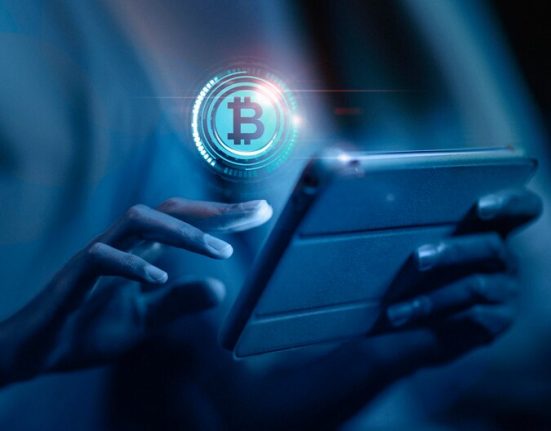The Global System for Mobile Communications Association (GSMA) has voiced its opposition to the blocking of mobile SIMs (Subscriber Identity Modules) belonging to non-filers in Pakistan. This stance comes as part of GSMA’s commitment to advocating for inclusive access to connectivity and digital services for all individuals, regardless of their tax-filing status.
In recent years, the Pakistani government has implemented measures to encourage tax compliance, including linking mobile phone ownership with taxpayer status. Under these regulations, mobile phone users who are not registered taxpayers, known as non-filers, face the risk of having their SIMs blocked, limiting their access to essential communication services.
The decision was issued in Income Tax General Order (ITGO) #01 of 2024 according to which the mobile SIMs of the identified individuals will be blocked until they are restored by either the Federal Board of Revenue or the Commissioner Inland Revenue with authority over the individual.
Julian Gorman, GSMA’s Head of Asia Pacific, wrote a letter to Shaza Fatima Khawaja, the Minister of State for Information Technology and Telecommunications. In his letter, he raised concerns over the Income Tax General Order (ITGO) issued by the FBR on April 30, 2024, which resulted in the blocking of over 500,000 SIM cards. The GSMA stated that the ITGO will have an impact not only on consumers and enterprises but will also undermine the vision of Digital Pakistan, including the FBR’s digitization efforts.
The Association acknowledged the Pakistan Telecommunications Authority’s (PTA) answer and highlighted the potential negative consequences of implementing the ITGO. In a statement issued on Friday about the enforcement of the ITGO, the PTA stated that the implementation of the order was outside of its competence and so would have “no legal binding effect” due to its inconsistency with the existing legislative framework.
The PTA noted that before executing the order, “factual issues concerning the use of SIMs with CNICs” must be verified. This is because individuals are permitted to obtain up to eight SIM cards (three for data and five for voice). As a result, before issuing and implementing the ITGO, the tax collection authority must follow procedural processes, including sending notices, as outlined in Section 144-B of the Income Tax Ordinance, 2001.
The PTA recommended that rather than immediately blocking SIMs, the FBR should have found “alternative methods for improving compliance with income tax return filings,” such as awareness programs.
Furthermore, the authority stated that the matter should have been investigated “holistically, with input from all stakeholders,” including the Ministry of Information Technology and Telecom.
In a second statement issued today, the PTA stated that it had notified the FBR of the need to study the ITGO prior to its implementation. The authority also stated that it has already began consulting with stakeholders on the topic.
Major issues include the influence on individuals’ rights, livelihoods, access to important services and information, and gender inequities in SIM card registration—only 27% of SIMs are registered with female Computerized National Identity Cards (CNIC).
The GSMA further stated that this decision will have far-reaching societal consequences, including aggravating gender discrepancies in SIM registration, impacting educational activities, weakening trust in foreign investment, and creating obstacles to financial transactions and e-commerce.
GSMA, as the leading organization representing the interests of mobile network operators worldwide, recognizes the importance of expanding access to mobile connectivity as a catalyst for socio-economic development. Access to mobile services enables individuals to participate in the digital economy, access educational resources, healthcare information, and government services, and stay connected with loved ones.
The blocking of mobile SIMs for non-filers poses significant challenges to achieving universal access to mobile services in Pakistan. It disproportionately affects marginalized communities and individuals with limited financial means who may already face barriers to tax compliance. Moreover, it undermines efforts to bridge the digital divide and promote digital inclusion, hindering progress towards achieving the Sustainable Development Goals (SDGs). The implementation of the ITGO may also limit connectivity for potential subscribers and users, affecting personal growth and well-being.
GSMA emphasizes the need for policymakers to adopt measures that balance the objectives of tax compliance with the principles of inclusivity and accessibility. Rather than punitive measures such as SIM blocking, GSMA advocates for strategies that promote voluntary tax compliance while safeguarding the fundamental right of individuals to access communication services.
Alternative approaches, such as incentivizing tax registration through targeted awareness campaigns, simplifying the tax filing process, and offering incentives for compliance, can encourage greater participation in the formal economy without resorting to punitive measures. Additionally, investments in digital literacy programs and infrastructure development are essential to ensure that all segments of society can benefit from mobile connectivity and digital services.
As Pakistan navigates its path towards achieving broader socio-economic development and digital transformation, GSMA stands ready to collaborate with policymakers, regulators, and stakeholders to promote policies that enable inclusive access to mobile connectivity and digital services for all. By fostering an enabling environment that prioritizes accessibility, affordability, and inclusivity, Pakistan can unlock the full potential of mobile technology to drive progress and prosperity for its citizens.
Another Exciting News: Pakistan to Launch Another Satellite Into Space After Licube’s Success







